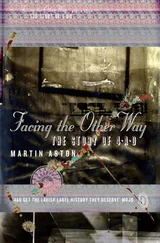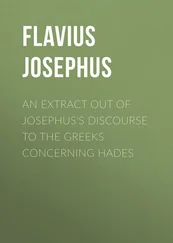“I wouldn’t say I was the one who’s in an awkward position,” said Camilla.
“Oh, don’t you think so?” Selena seemed to find this a novel and interesting point of view. “I thought the idea was that we would appear to have fallen by accident. That means, surely, that you have to persuade us to go close enough to the edge to be pushed over; and your only means of persuasion is that fishing-spear.”
“I think,” said Camilla, “it’ll be quite an efficient form of persuasion.”
“Do you think so? But if we’re supposed to have died by accident, you see, it really won’t do for us to be found with spear-wounds: all sorts of questions would be asked, and you can’t risk that, can you? That’s what I mean by your being in an awkward position: you can’t expect to achieve much by threatening us with a weapon which we both know you can’t afford to use.”
“Don’t kid yourselves,” said Camilla. “I’ll use it if I have to.”
“I find it hard to believe,” said Selena, with a smoothness which she generally reserved for the Court of Appeal, “that you would do anything so… unintelligent. Do you really prefer the prospect of twenty years in a Greek prison to paying Sebastian and myself a modest retainer in exchange for our continued discretion?”
“Ah,” said the other girl triumphantly, “you admit you were going to blackmail me.”
“In the circumstances, it would clearly be useless to deny it. But what makes you think it would be so very unpleasant? You don’t imagine, surely, that we would make demands which would reduce you to unaccountable penury or raise ourselves to unaccountable affluence? Anything on that scale would lead inevitably to our exposure, and we don’t share this taste of yours for spending long periods in prison. We would content ourselves, in our own interest, with a very trifling proportion of your total income, such as you would happily expend on services of far less value. Moreover, since you are the only potential purchaser of our discretion, we would naturally have your welfare very much at heart: our own safety and prosperity would depend on yours, and we could be expected, in our own interests, to use for your advantage whatever talents and influence either of us may possess.” A wistful note came into her voice. “It’s still very difficult, you know, for a woman to achieve recognition at the Bar, whatever her abilities. It makes all the difference if one has someone whose help and support can be absolutely relied on — not simply for the sake of friendship, which may be capricious and half-hearted, but because there is a genuine identity of interest.”
“My God,” said Camilla, “you make it sound as if you’d be doing me a favor.” She stood gazing at Selena with fascinated amazement; and the spearpoint wavered forgetfully from its menacing direction.
There was perhaps no need for haste. I have known Selena, when negotiating a compromise of Chancery litigation, to divert the attention of far abler lawyers than Camilla with arguments no less specious for considerably longer than five seconds. It took no more than that, however, for Sebastian to rise from the darkness and leap for the embrasure.
The struggle might have been brief if both participants had been of equally murderous intention, each content to send the other on the swift and deadly journey from the edge of the embrasure to the jagged rocks below. It could not be expected, however, that Sebastian would so easily set aside the constraints of temperament, education and principle: he fought only for possession of the spear, and any advantage he may have had in strength was cancelled out by his care for the safety of his antagonist. She drew him, as they struggled in the confined space of the narrow aperture, ever closer to the edge; and it seemed to me that none of us who watched had any power to prevent her.
But the boy Leonidas stepped out of the shadows and called to her by name. When she saw him she released her grip on the spear; without resisting further, she allowed Sebastian to take it from her and step back to the safety of the chamber. If she had chosen to follow him, I scarcely know what we would have done: it would have been a hard thing, when it came to it, to consign so splendid a creature to long years of dark imprisonment.
She chose instead to retreat as she had come — by the rope hanging down the precipitous rockface: she was still confident, it seemed, that her athletic skills would assure her a safe descent; but on this occasion they failed her.
Thinking it absurd after travelling so far to return immediately to the uncertain skies of London, I spent some further weeks on the shores of the Mediterranean in diversions not material to my present narrative. It was not until September that I again found myself at a candlelit table in the Corkscrew, in the company of those members of Lincoln’s Inn whom I accounted particular friends.
In view of the part I had played in penetrating the mystery of Deirdre’s death and in frustrating, at no small personal risk, a murderous attack on Selena and Sebastian, I rather expected my arrival at this first reunion to be greeted with a certain amount of congratulation and admiring comment, and was ready to answer a stream of eager questions as to the process of reasoning by which I had reached my conclusions. I should have remembered that the events which I have described, having occurred some weeks before, would by now have been displaced in the interest of my friends by matters of greater weight and consequence.
Timothy and Selena were attempting to negotiate an equitable compromise, on behalf of their respective clients, of a dispute concerning rights of drainage. Cantrip was complaining of a decision given against him that morning in a possession action in Little Piddlecombe County Court. Julia was relating to an unsympathetic Ragwort her disappointment in what she was pleased to term an affair of the heart: the rejection of her advances, now freely admitted to have been over-precipitate, by a graceful and elegant young man met on her recent holiday.
Eventually, however, I found an opportunity, while Timothy was acquiring another bottle, to remark to Selena that I hoped she was fully recovered from the disagreeable experience of a few weeks before. Remembering after scarcely a moment’s thought the events to which I referred, she assured me that she was.
“Though at the time, I must admit, I found it all most disconcerting. Especially since Camilla was the only member of the family I’d never suspected of any homicidal tendencies — I always thought of her as the prospective victim. I wish we knew,” she added absent-mindedly, “what she thought we were blackmailing her about.”
This observation surprised me. It was true that the circumstances in which we had last met had not seemed appropriate to a detailed explanation: I had judged it tactful, so soon as decorum permitted, to take an unobtrusive farewell, leaving Selena to devise with Sebastian and Leonidas such account of Camilla’s death as would cause least distress to the surviving members of the family. I had supposed, however, since she knew so much of the truth, that subsequent reflection would have made clear the remainder.
“I say, Hilary,” said Cantrip, “you don’t mean you know what it was?”
“My dear Cantrip,” I said, “how otherwise could I have foreseen her attempt on the lives of Selena and Sebastian?”
“Oh,” said Cantrip, looking mildly surprised. “We didn’t really think you expected anything like that — we thought it was just a coincidence. The way we saw it was that you’d got a bit fed up hanging around in London and wanted to touch Timothy for the first-class fare to Corfu.”
Читать дальше












